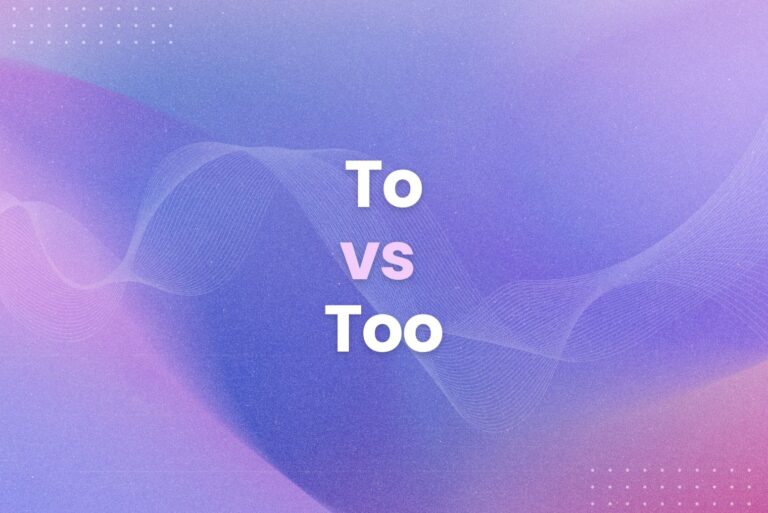Thesis vs Dissertation: A Comparative Analysis
The English language is full of words that have almost identical meanings, and sometimes even similar applications, but the small nuances are what set them apart. In the academic world, two great examples of this issue are the words thesis vs dissertation.
On the surface level, they’re interchangeable. However, the deeper you dig, the more you notice that they aren’t quite the same.
Today, we’re going to compare thesis vs dissertation, provide examples, and go over the nuances of each word comparatively.
What is a Thesis?
Before we can start digging into the finer details of how a thesis and dissertation compare, we need to define the two clearly and explore the key points behind each word.
The secondary, and more general definition of thesis, is that a thesis is simply a statement that you want to prove, or it’s accepted information that you want to maintain as fact. For it to be a thesis instead of just a statement, you need to be able to support it with evidence.
However, the two words don’t usually overlap in that general sense. Confusion tends to become a problem when you’re in an academic setting, and that’s covered by the primary Oxford definition of thesis.
The primary definition of a thesis is that it’s an extensive academic paper written on a subject.
When is a Thesis Written?
When thesis is used to describe an academic requirement, it’s typically used for a project that is part of earning a Master’s degree.
Typically, a thesis compiles a large amount of existing research to state a point on the student’s given subject, and at the end of the Master’s degree program, their thesis is turned in and graded.
Examples of Thesis in Action
For example, if you’re pursuing a Master’s in engineering, you might have to write a thesis on a working principle. This shows your research skills and grasp on the topic.
Here’s a sentence using thesis: “Jacob’s thesis covered the working principle of gravity in aerospace engineering when he was earning his Master’s degree.”
The Origin of Thesis
Thesis is believed to originate from Aristotle, and it originally meant “to place or to put forth” in regard to a position on a topic. This is where Oxford’s secondary definition comes from.
However, it started to intertwine with higher learning in the 1100s and 1200s, and by the 1600s, it started resembling the academic usage that we see today. By 1650, it was officially part of gaining a university degree.
What is a Dissertation?
A dissertation is extremely similar to a thesis, but it is almost solely a term used in the academic field.
While a thesis focuses on gathering existing information to support a statement, a dissertation starts with that approach, but it takes things further by allowing the author to discover their own evidence and insert new ideas into the writing.
Each of those new ideas has to be supported with research. So, a dissertation typically ends up being far more complicated than a thesis and requires a different approach to the research phase.
When are Dissertations Written?
A dissertation’s more complex nature is also reflected in its application.
When you have to write a thesis, it’s typically because you’re pursuing your Master’s degree. That’s a more general and flexible degree that only takes one or two years to complete.
When you write a dissertation, it’s usually because you’re pursuing a Doctorate’s degree. A doctorate is highly specialized, and it’s considered superior. So, the more complex and original proof of skill and knowledge is used when pursuing it.
Examples of Dissertation in Action
An example of a dissertation in healthcare would be a soon-to-be doctor presenting more effective protocols to handle mishaps post-surgery and supporting those proposed protocols with original research they’ve gathered throughout the doctorate program.
Here’s dissertation in a sentence. “Doctor Emile wrote his dissertation on more effective malpractice reporting protocols while pursuing his medical degree.”
The Origin of Dissertation
Dissertation isn’t as old as the word “thesis”. The first recorded usage of the word “dissertation” was in the early 1600s. And it stemmed from the Latin word “dissertatio”. In English, the word started being recorded in the 1650s.
Unlike thesis, dissertation has more or less always been used in an academic sense. However, its original definition was simply a debate or a conversation.
This matches its use in the academic field, as well. When you present a dissertation, you’re presenting a new idea with original research to open a dialogue that challenges existing ideas and hopefully drive progression in the field.
Interestingly, the term wasn’t used in the United States until 1890 despite Harvard University being founded in the 1600s. The earlier uses of the term were used in other universities around Europe.
What is the Difference Between Thesis vs Dissertation?
Now that we’ve gone over each word’s history, general usage, and definitions, what is there to take away from it?
Primarily, there are two core differences to consider, and they tend to be more relevant to the academic field.
Core Academic Difference Between Thesis vs Dissertation:
The first, and most obvious point, is that each one is used in the pursuit of a different tier of degree. A simpler thesis is more commonly used for pursuing a Master’s degree. And a dissertation is used to pursue a Doctorate’s degree.
Functional Difference Between Thesis vs Dissertation:
Beyond that, the functional difference is that a dissertation is used to present a new idea with original research findings. And a thesis is a compilation of research to support a statement, but it’s not necessarily to support a new idea. It can also be written to maintain an existing accepted fact and strengthen the argument for it.
As words with general definitions, the two words aren’t often used outside of academics in the modern world. However, of the two, thesis tends to be used more in lectures, philosophical presentations, and debates rather than dissertation.
Discover More with Arvin
Like we said earlier, the English language is full of words that are extremely similar in both usage and definition.
But you don’t have to search for a full comparative analysis every time you bump into one.
Arvin is an advanced web assistant you can use right in your browser to ask your burning questions and get concise answers right away.
Whether it’s the difference between two words or you need to know which AI is right for you in an increasingly AI-driven world, Arvin has you covered. It can even help with book summaries such as our summary of Who Moved My Cheese: Summary for Embracing Change.
For a complete online assistant, check out Arvin AI today.

FAQs
Completing a Doctorate’s degree program.
In academia, a thesis is used to complete a Master’s degree program.
While similar, they’re used in different applications with slight functional differences.
Aristotle is considered the originator of the word in ancient Greek around 1100.
Dissertation first started being used in the 1650s in academia.
Thesis stems from the ancient Greek word θέσις. Dissertation stems from the Latin word dissertation.





